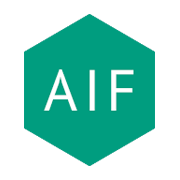
Safer Spaces at Festivals
[Updated 2017 Campaign]
What is Safer Spaces at Festivals?
Safer Spaces At Festivals is a campaign and charter of best practice originally launched in 2017 to tackle sexual violence, harassment and assault at festivals. It was relaunched in May 2022 by AIF in partnership with Rape Crisis England and Wales, Good Night Out, Safe Gigs for Women, Girls Against and UN Women.
What is the point of the campaign?
To raise greater awareness about sexual violence at festivals, which can be experienced by anyone from audiences to artists to staff and volunteers.
To commit to taking a survivor-led approach to tackling sexual violence, underpinned by policies, procedures and training.
To spread key messages about consent and bystander intervention.
Is sexual violence a problem?
Unfortunately, it is: According to Rape Crisis England & Wales, 1 in 4 women have been raped or sexually assaulted as an adult, and in 2023 alone 68,387 rapes were recorded by police. Sexual violence can also be a difficult problem to quantify. According to Rape Crisis England & Wales, 5 in 6 women who are raped do not report it to police (the same is true for 4 in 5 men).
Is sexual violence a problem at festivals?
Festivals are ultimately microcosms of wider society and sexual violence is a problem that persists in our society.
In the summer of 2018, YouGov reported that 1 in 5 festival-goers had experienced sexual assault or harassment at a UK festival. This is a lifetime statistic, not connected to any particular event or year.
In AIF’s latest audience survey, following the 2019 season, when asked: ‘Did you experience sexual assault or harassment at any festival this year?’ 98.7% answered ‘No’. This was from a total of 2,283 respondents, 68.83% of which identified as female.
However, at festivals and in wider society, the scale of sexual violence is difficult to measure due to the underreporting, underlining the need for a proactive approach from festival organisers, who take this issue incredibly seriously in the planning and delivery of their events.
What does the charter ask festivals to commit to?
The Charter states that all allegations of sexual harassment, assault and violence will be taken seriously, acted upon promptly and investigated. This is supplemented by a commitment to clear, robust reporting and disclosure procedures, including how to report incidents onsite and post event.
Festival policies will include relevant health guidance and connections to local services, and the campaign will feature advice on how to be an active bystander including the ‘5 D’s’ of Bystander Intervention, devised by Right To Be – Direct, Delegate, Distract, Document and Delay.
In addition, participating festivals will actively promote the principle of consent regarding sexual activity on-site at events, defining consent as “someone engaging in sexual activity if they agree by choice, and they have the freedom and capacity to make that choice” and reiterating that consent can be revoked at any time.
Participating festivals are also committing to assessing their training needs and provide training for staff and volunteers on both how to proactively monitor for and deal with incidents of sexual assault and harassment.
AIF also created shareable assets with key messaging, to be used on both social media and onsite posters.
Click for the Charter of Best Practice.
Click for the shareable assets.
If you’re a festival that wishes to sign the Charter, please email phoebe@aiforg.com.

RESOURCES, HELPLINES AND CASE STUDIES
Resources:
Good Night Out – Active Bystander guide
Good Night Out – training
NHS – Find your local SARC
Find your local Rape Crisis centre – Many Rape Crisis centres also provide training for professionals and organisations – get in touch with your local centre to see what is available.
Help after rape and sexual assault, including helplines
Galop – LGBT+ helpline
Galop x AIF LGBT+ Resource for Festivals
Galop LGBT+ Messaging for Events
Stamp Out Spiking
Festival Safe
Safer Spaces
Bristol Nights – Women’s Safety Charter
Enough campaign
Suzy Lamplugh Trust – free bystander intervention training
FRANK – spiking and tips to stay safe
Video – Consent: It’s As Simple As Tea
Helplines:
The 24/7 Rape & Sexual Abuse Support Line – 0808 500 2222
is a free phone and online chat service, run by Rape Crisis England & Wales, for anyone aged 16+ in England and Wales who has experienced something sexual that they didn’t want, didn’t consent to or are feeling confused about – no matter when or where it happened.
The Support Line is open 24 hours a day, 365 days a year, for victims and survivors of any gender. Specialist staff are there to listen, answer questions and offer emotional support.
National Helpline for LGBT+ Victims and Survivors of Abuse and Violence – 0800 999 5428
Monday – Thursday, 10am to 8:30pm
Friday, 10am to 4:30pm
They’ll call you back if you can’t get through to us the first time or if you call outside their opening hours. Just leave them a message with your contact details and the best time to get back to you.
Case Studies:
Case study: Strawberries & Creem Festival – Safe Spaces Now
Case study: Boomtown Fair – Respect campaign
Case study: Rebellion Festival
Case study: Boardmasters & NASS Festival





